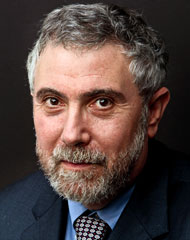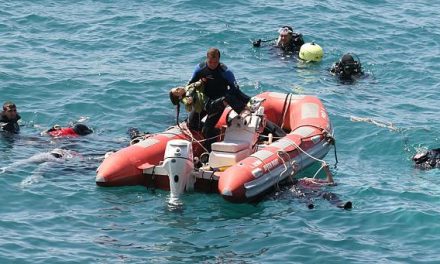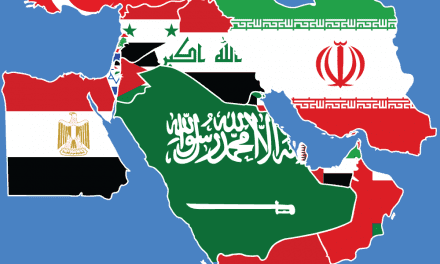by James F. Jeffrey*, Just Security
Attention at the NATO summit July 11-12 — and the subsequent Trump-Putin meeting in Helsinki on July 16, for that matter – will focus mainly on the American president’s adherence to alliance solidarity in the face of Moscow’s array of challenges.
But a second controversy bubbles just under NATO’s surface: the degree to which an organization that sees itself as a values-driven collective as much as a security alliance can accommodate illiberal states among its members. While such states are growing in number – most recently Poland, Hungary, even arguably Trump’s version of America, arguably the most worrisome is Turkey.
The Turks stand out for two reasons. The first is Turkey’s unique location. NATO and the U.S. need its airspace, land routes, and control of the Dardanelles to contain Russia in the Black Sea and the Caucasus to the north, and to counter the myriad threats to the south in much of Syria, Iraq and Iran.
Another reason Turkey’s slide is particularly notable in NATO is that it constitutes a rarity among member states other than the U.S. — it is a security provider, as opposed to security consumer. In addition to its critical strategic location, Turkey boasts a burgeoning population of 80 million, a strong economy that ranks as the 17th biggest in the world, and a powerful military, the second-largest in the alliance. Its armed forces have a record of successful operations from Cyprus in 1974 to Syria and Iraq in recent years. It thus is hard to imagine an effective NATO without Turkey.
Yet Turkey, never a perfect democracy, has moved undeniably to a more authoritarian, less liberal political system under President Recep Tayyip Erdogan. The presidential and parliamentary elections in June were determined by the OSCE observer mission to be less than fair, and the European Union (Turkey is a candidate state and customs-union partner), U.S., and human rights NGO’s have long complained of politically motivated harassment and imprisonment of journalists and political activists.
These complaints reached a crescendo after Turkey’s 2016 failed military coup, which almost succeeded and cost more than 200 lives. The attempted putsch generated a crackdown by Ankara that saw more than 50,000 people arrested and in excess of 100,000 citizens removed from public service jobs for alleged links to the Pennsylvania-based Turkish cleric Fethullah Gülen, whom many Turks blame for the coup.
Concerns about this democratic drift (combined with different concerns about the Erdogan government’s cooperation with Putin’s Russia, including a major weapons purchase) have generated calls by the U.S. Congress to limit U.S. military cooperation with Ankara. Immediately after the coup attempt, then-Secretary of State John Kerry, rather than congratulating Erdogan for surviving it, threatened Turkey’s expulsion from NATO for its actions against alleged coup plotters. The threat was nonsensical; under the NATO treaty, members cannot be expelled.
The Post-1989 World is Over
Regardless of its questionable legality, an approach in the spirit of Kerry’s reprimand might have earned considerable support in a post-1989 world, when strategic security seemed to be a given. Without a threat analogous to the Soviet Union, the emphasis in international organizations from the EU to NATO shifted to advancing democratic values in the “Third World” and perfecting those values in their own member states. The thesis appeared correct that the West did not have to sacrifice values for security any longer, as NATO did during the Cold War in enlisting dictatorial Spain and Portugal or looking past military rule in both Turkey and Greece.
But the complementary thesis that the West had sufficient incentives and disincentives to transform dictatorships into well-governed states, let alone pluralistic democracies, was overstated. Apart from the historically unique situation among Eastern European states in 1989, the record has been meager since World War II. Far more common have been the disappointments, beginning with Chiang Kai-shek, as documented in Barbara Tuchman’s magisterial work, Stillwell and the American Experience in China.
More importantly, we are no longer in a “post-1989” world, with that comfortable thesis that security threats have disappeared. Ukraine, Syria, North Korea, the South China Sea and 9/11 all document the stark words of the Pentagon’s 2018 “National Defense Strategy: “The central challenge to U.S. prosperity and security is the re-emergence of long-term, strategic competition.”
Given the need to cope with this competition, on the one hand, and scant evidence on the other that criticizing nation states for their internal policies prompts long-term transformations, the U.S. and NATO have no choice but to cooperate with a politically flawed Turkey. Both the Obama and Trump administrations have come to this conclusion, as seen by the recent transfer of F-35 Stealth Fighter jets to Ankara despite Russian arms purchases, and cooperation in northern Syria around the “tinderbox” city of Manbij.
Security vs. Values
Yet the question of how to weigh military imperatives against principles is not completely resolved. Values still matter, objectively and in alliances. Cooperating with Turkey does not preclude quietly urging reform and sounding public warnings when Turkey abuses human rights.
Moreover, Turkey’s efficacy as an ally rests in part on these values. The North Atlantic Treaty states in its opening that the signatories “are determined to safeguard the freedom, common heritage and civilization of their peoples, founded on the principles of democracy, individual liberty, and the rule of law.”
Springing to the defense of a NATO ally is not an absolute legal obligation under the North Atlantic treaty; American and European leaders need public approval for potentially risky and costly military assistance, and the policies and nature of the state they are asked to defend play a role.
Moreover, the less democratic and pluralistic a state, the more that state pursues self-interested foreign policies. If those policies ignite conflict, the state may not receive automatic support from allies. Finally, Turkey’s own success, and its value as a powerful NATO ally, stem in good part from its democratic political system and a market economy open to the world. A more authoritarian system places those assets at risk.
Thus, the U.S. and other allies have both moral and security interests in Turkey’s governance. The trick is to influence that governance in a liberal direction without slipping into a “with us or against us” mode that could undercut security for Turkey, NATO, and in the end, the U.S.
*Former U.S Ambassador to Turkey and Iraq, and currently the Philip Solondz distinguished fellow at The Washington Institute.


















